by Lois Tverberg
Seven days you shall eat unleavened bread, but on the first day you shall remove leaven from your houses; for whoever eats anything leavened from the first day until the seventh day, that person shall be cut off from Israel. (Exodus 12:15)
Still today Jewish people make great effort to observe the commandment to remove all leaven from their homes and eat only unleavened food for seven days. The home is scrupulously cleaned, and pots and sinks boiled. In some homes an entirely different set of plates is used for one week of the year. The only bread that can be eaten is matzah: dry, flat, unleavened bread that has been carefully prepared to insure no fermentation occurs.
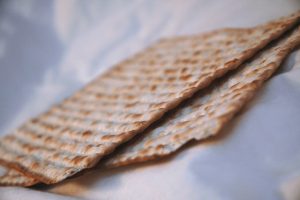 Why do they do this? Surprisingly, the Bible gives multiple explanations about the significance of eating unleavened bread. In Exodus 12:34, it says that it is to commemorate their rapid departure from Egypt, when they didn’t have time to let their bread rise. But in Deuteronomy 16:3, it is called the “bread of affliction” and it seems to be a reminder of the misery of their slavery. Or, it could be understood as a picture of eating manna in the desert for forty years. It is paradoxical that unleavened bread represents both slavery and freedom, but Jewish sources agree that it does.
Why do they do this? Surprisingly, the Bible gives multiple explanations about the significance of eating unleavened bread. In Exodus 12:34, it says that it is to commemorate their rapid departure from Egypt, when they didn’t have time to let their bread rise. But in Deuteronomy 16:3, it is called the “bread of affliction” and it seems to be a reminder of the misery of their slavery. Or, it could be understood as a picture of eating manna in the desert for forty years. It is paradoxical that unleavened bread represents both slavery and freedom, but Jewish sources agree that it does.
In the time of Jesus, leaven had gained even more significance beyond the meanings in the Torah. Unleavened bread that is very flat and plain was seen to represent humility, rather than being “puffed” up with pride. Because it is just wheat and water with no old, leavened dough added, it represented purity too. A person who was “unleavened” was like the character described in the beatitudes – meek and pure-hearted, aware of his own weaknesses, who comes to God honestly, without any pretense. In contrast, “leaven” was seen to be a picture of arrogance, boastfulness, hypocrisy, and being full of one’s self – to be “great in spirit” rather than being “poor in spirit.” This gives us insight on why Jesus says that the “leaven” of the Pharisees is hypocrisy. (Luke 12:1) And, it helps us understand Paul’s words to us as well:
Your boasting is not good. Don’t you know that a little yeast works through the whole batch of dough? Get rid of the old yeast that you may be a new batch without yeast – as you really are. For Christ, our Passover lamb, has been sacrificed. Therefore let us keep the Festival, not with the old yeast, the yeast of malice and wickedness, but with bread without yeast, the bread of sincerity and truth. (1 Cor. 5:6-8)
Photo: paurian

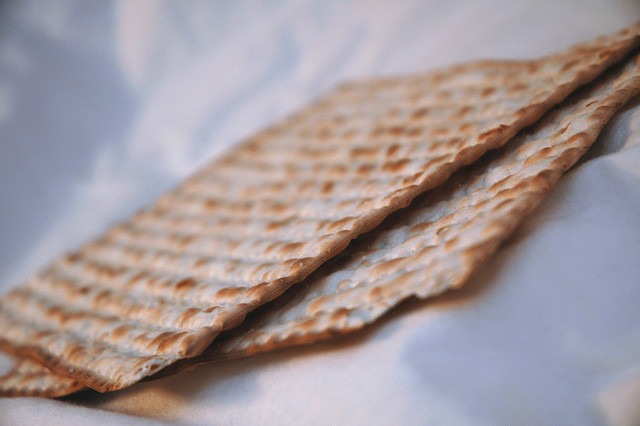
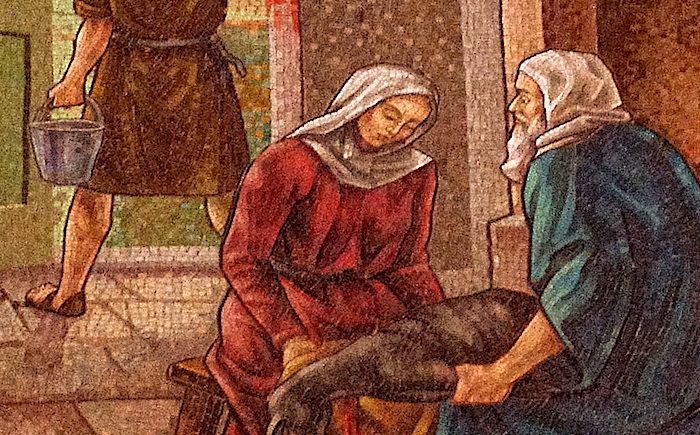
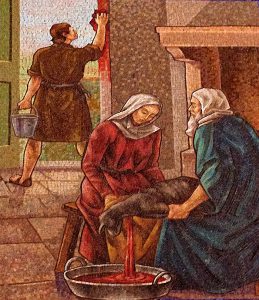

 the bitterness of slavery, and parsley dipped in salt water to remember the tears that their ancestors shed. Along with dry, unleavened bread, these items are the only foods available through the long ceremony that precedes the Passover dinner, which begins very late. As they talk about God’s redemption of people from Egypt, the people relive that hardship for just an hour while they are hungry for dinner but have only dry bread and bitter herbs to eat. Finally, they feast on a meal of wine and meat and wonderful food, reminding themselves of the joy of God’s redemption.
the bitterness of slavery, and parsley dipped in salt water to remember the tears that their ancestors shed. Along with dry, unleavened bread, these items are the only foods available through the long ceremony that precedes the Passover dinner, which begins very late. As they talk about God’s redemption of people from Egypt, the people relive that hardship for just an hour while they are hungry for dinner but have only dry bread and bitter herbs to eat. Finally, they feast on a meal of wine and meat and wonderful food, reminding themselves of the joy of God’s redemption.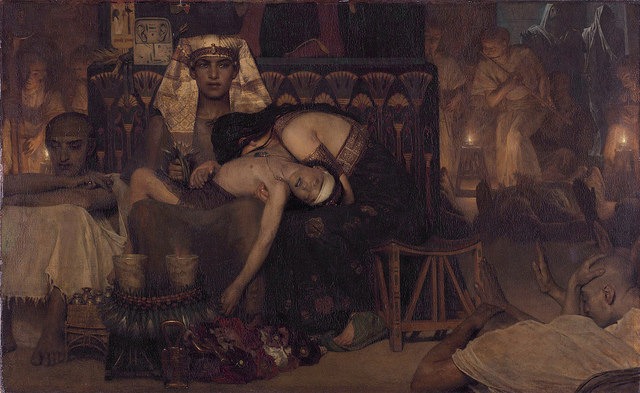
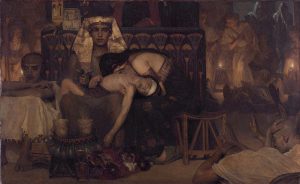 It is important to understand that in Hebrew, the word for “know,” yada, is more broad than in English, describing personal experience, not just intellectual knowledge. To “know” God in this sense is not just to have heard a name, but having awe for him from encountering his power directly. Pharaoh had no fear of this God because he had never experienced God’s power.
It is important to understand that in Hebrew, the word for “know,” yada, is more broad than in English, describing personal experience, not just intellectual knowledge. To “know” God in this sense is not just to have heard a name, but having awe for him from encountering his power directly. Pharaoh had no fear of this God because he had never experienced God’s power.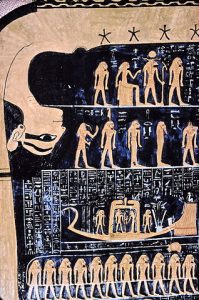 The very first instruction that God gave the Israelites as they were leaving Egypt was to establish a new calendar that was utterly unlike the Egyptian calendar. This may not seem significant to us, but how we measure time is fundamental for how we look at life. Our calendars define the importance of the day to the entire culture, saying whether we should work, rest or worship, or think about some great event in our past.
The very first instruction that God gave the Israelites as they were leaving Egypt was to establish a new calendar that was utterly unlike the Egyptian calendar. This may not seem significant to us, but how we measure time is fundamental for how we look at life. Our calendars define the importance of the day to the entire culture, saying whether we should work, rest or worship, or think about some great event in our past.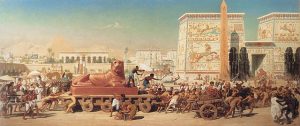
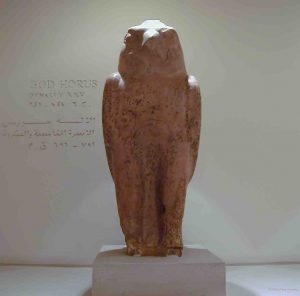
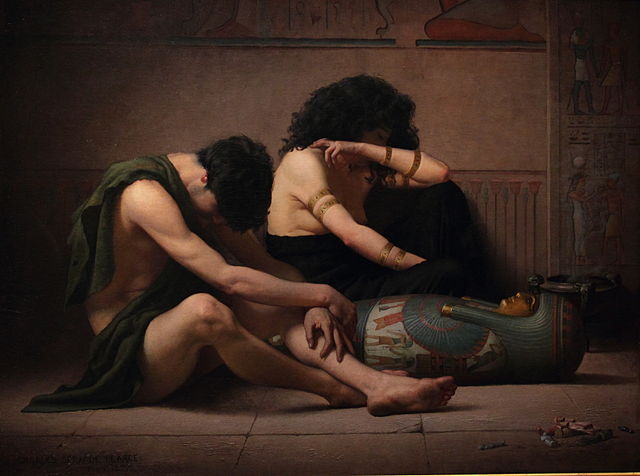
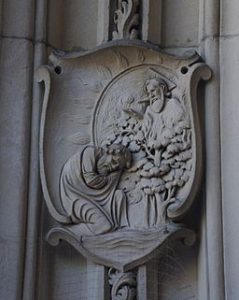 him to somehow go convince Pharaoh to release the Israelites from slavery all on his own. What an impossibility that a stuttering 80-year old shepherd could do such a thing! Perhaps he imagined that God was telling him to raise up a rebellion who could demand release from Pharaoh. In his younger days when he was passionate for justice, maybe he could have done it, but not now. Surely God couldn’t use him.
him to somehow go convince Pharaoh to release the Israelites from slavery all on his own. What an impossibility that a stuttering 80-year old shepherd could do such a thing! Perhaps he imagined that God was telling him to raise up a rebellion who could demand release from Pharaoh. In his younger days when he was passionate for justice, maybe he could have done it, but not now. Surely God couldn’t use him.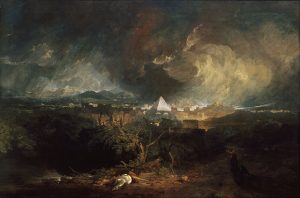 e LORD said to Moses, “When you go back to Egypt see that you perform before Pharaoh all the wonders which I have put in your power; but I will harden his heart so that he will not let the people go. – Exodus 4:21
e LORD said to Moses, “When you go back to Egypt see that you perform before Pharaoh all the wonders which I have put in your power; but I will harden his heart so that he will not let the people go. – Exodus 4:21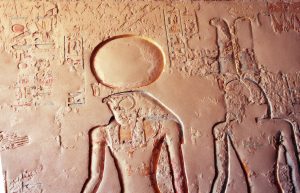 Israelites, but to declare that God was supreme over the many “gods” that Egypt worshipped (Ex.
Israelites, but to declare that God was supreme over the many “gods” that Egypt worshipped (Ex.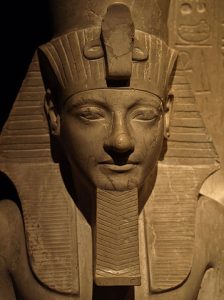 Many of us struggle with the fact that God said that he would harden Pharaoh’s heart, so that God could bring all ten plagues on Egypt before he finally would free the Israelites. It seems like Pharaoh might be innocent pawn which God callously manipulates.
Many of us struggle with the fact that God said that he would harden Pharaoh’s heart, so that God could bring all ten plagues on Egypt before he finally would free the Israelites. It seems like Pharaoh might be innocent pawn which God callously manipulates.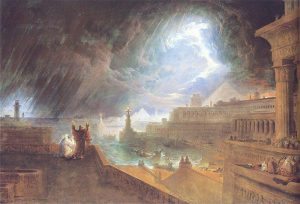 They meant that this was the sign of a power far, far greater than they could conjure up. Often God’s power or intervention is described metaphorically by using words like God’s “arm” or God’s “hand.” God’s “finger” also refers to his power or intervention. God is so mighty that all he had to use was his littlest finger to defeat the powers of the magicians in Egypt!
They meant that this was the sign of a power far, far greater than they could conjure up. Often God’s power or intervention is described metaphorically by using words like God’s “arm” or God’s “hand.” God’s “finger” also refers to his power or intervention. God is so mighty that all he had to use was his littlest finger to defeat the powers of the magicians in Egypt!